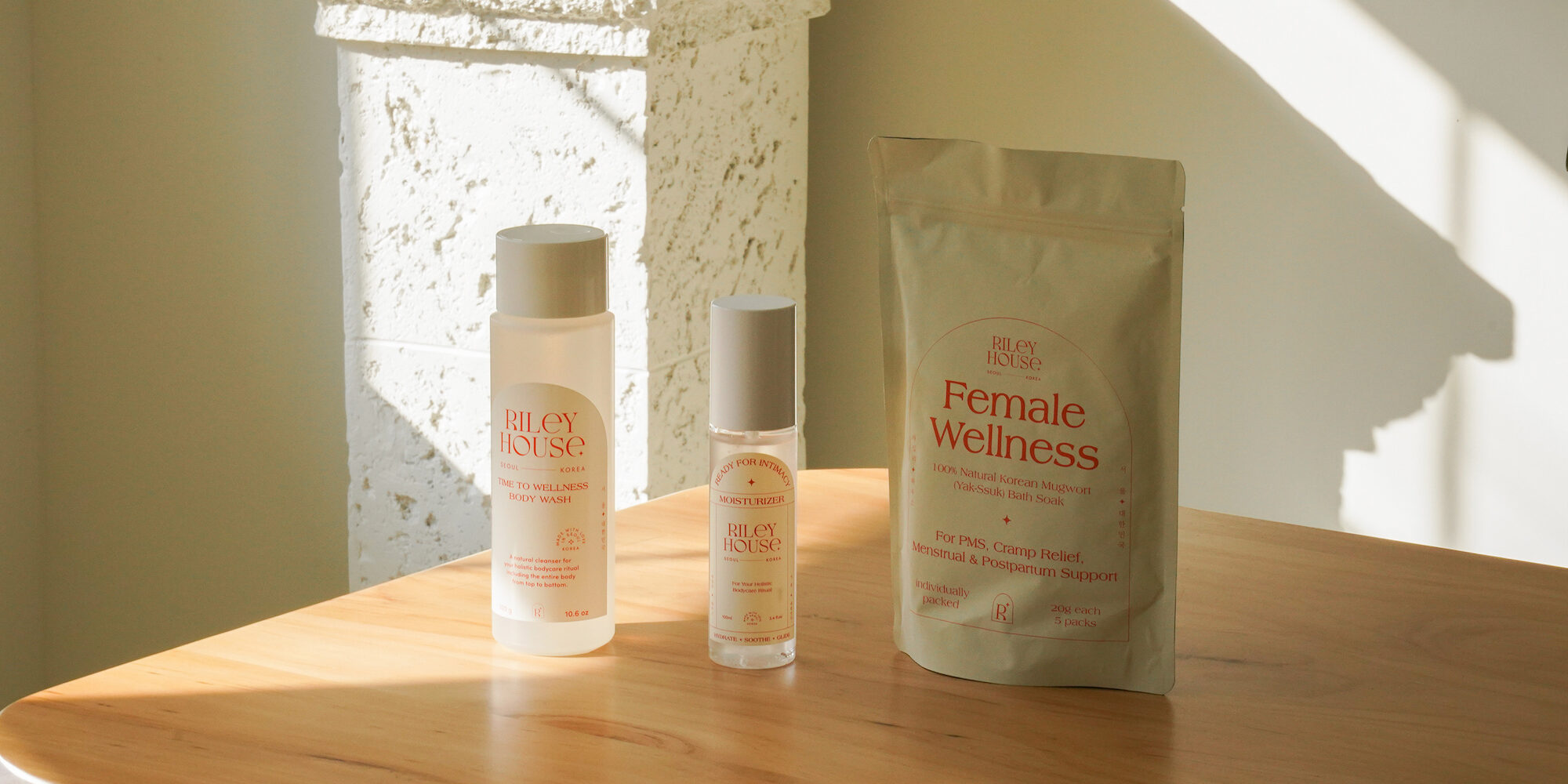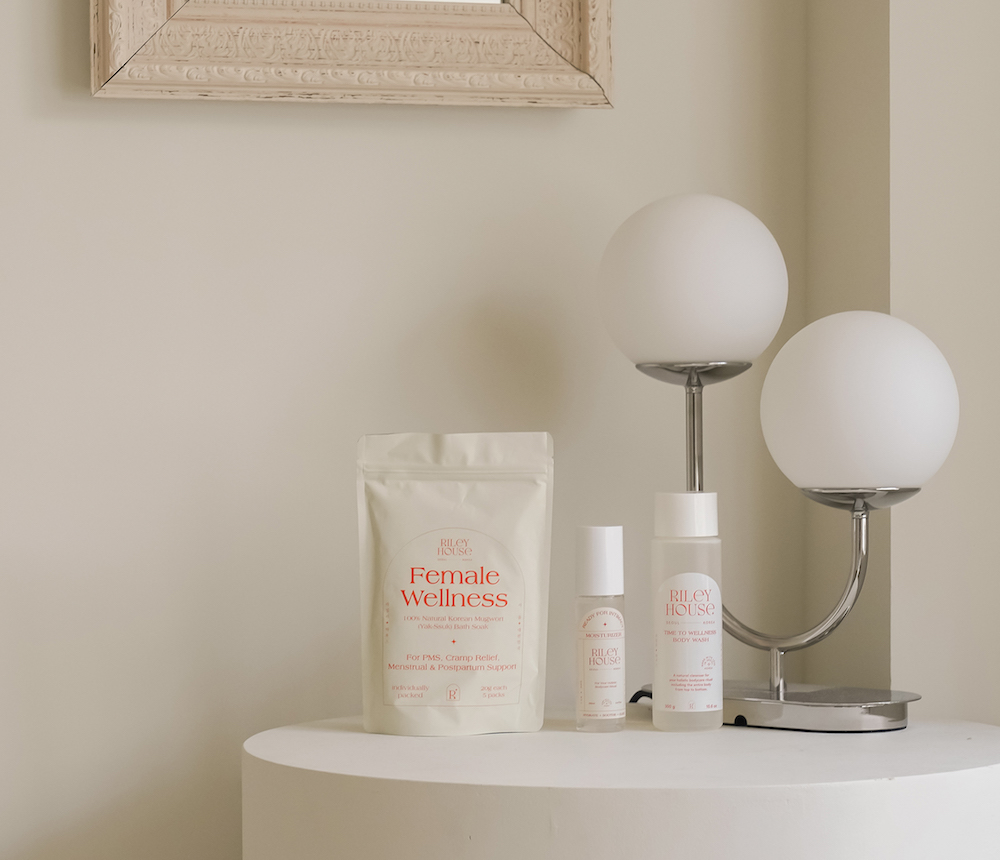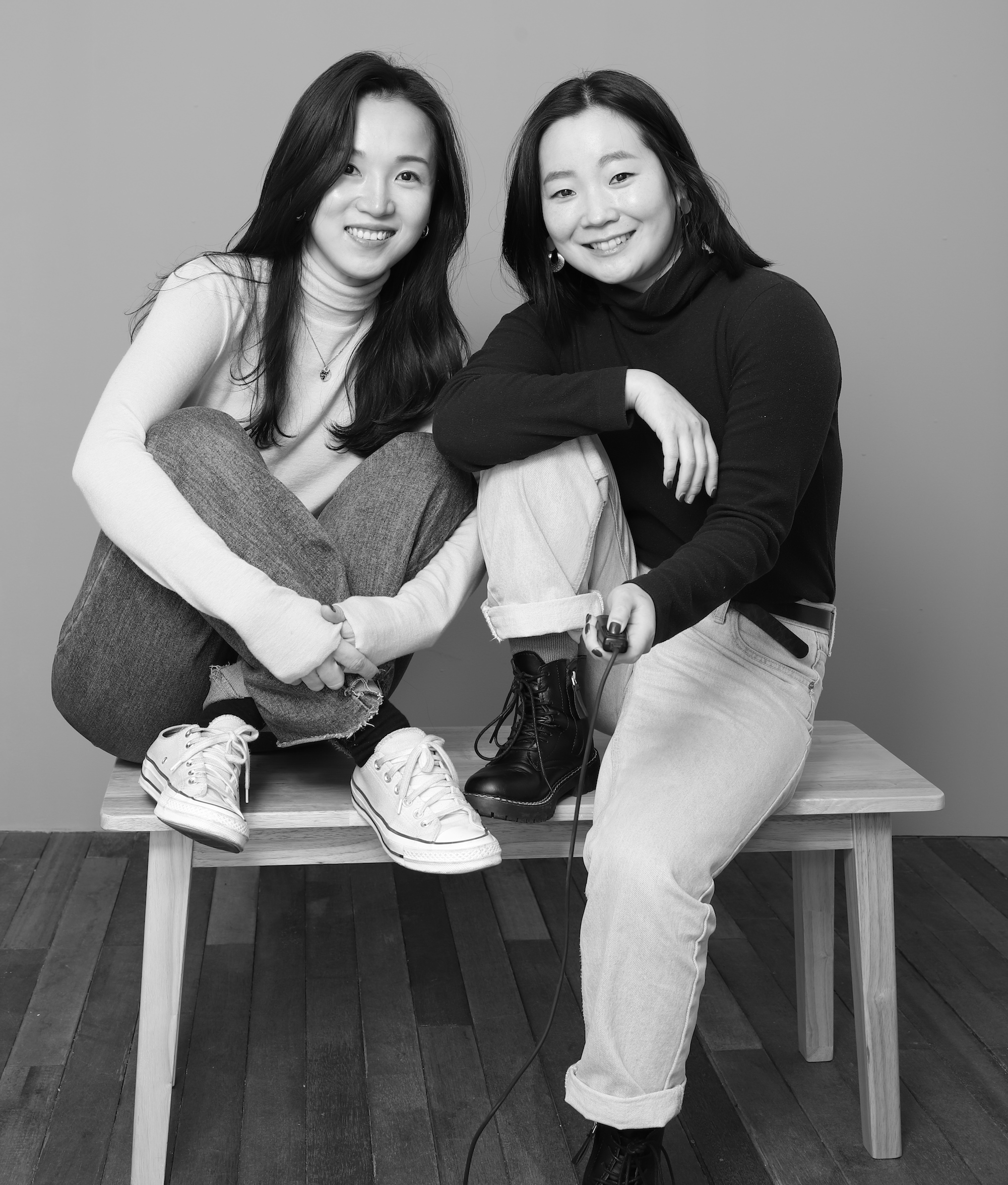
Is K-Wellness The Next K-Beauty? Intimate Care Brand Riley House Is Betting On It
Seoul-based Riley House wants to bring Korean self-care and intimate wellness rituals into American homes.
The brand has launched in the United States with a collection of body and ingestible products featuring traditional Korean ingredients like mugwort and angelica leaf extract. The products include $25 Time To Wellness Whole Body Wash, $28 Ready For Intimacy Moisturizer, $20 Female Wellness Mugwort Bath Soak and $18 Green Elixir Pure Mugwort Powder.
Riley House co-founders Grace Son and Mina Jang met in 2017 as members of the North American sales team of Umma, a global distribution startup bringing K-Beauty brands to the U.S. In April 2018, it curated a 10-step K-Beauty skincare box, “The Case Full of Seoul,” for Costco. The box was a huge success and sold out in three months. It soon expanded offline as well as to Costco Mexico and Costco Canada.

“Our main focus was to educate Costco customers on K-Beauty,” says Son. “They had no idea what K-beauty was. We put a lot of work into how to educate them. We made a tutorial for them. We made a booklet breaking down every step, why you need to do this after that, what the categories are. They didn’t really know what a serum is or what a sheet mask is. That experience really helped us understand why content is so important when it comes to introducing a new culture, especially into the U.S. market.”
The experience inspired Son and Jang to develop Riley House to share their story and heritage with American customers. They also saw big beauty retailers in South Korea like Olive Young picking up feminine care and sexual wellness products like condoms and “massage oil” from emerging brands.
However, given their familiarity with the retail scene in the U.S.—along with their work with Costco, Son grew up in the U.S. prior to returning to South Korea in middle school, and Jang grew up in South Korea and went to college in the U.S.—and the momentum of the sexual wellness category here, they decided to debut Riley House in the country.
Riley House aims to be a self-care brand, a concept that Son and Jang say encompasses intimate wellness. “It’s a holistic thing. You have to take care of your whole body. There’s no boundaries to self-care. We want to be a head-to-toe self-care brand,” explains Jang. While Riley House’s Ready For Intimacy Moisturizer can be used as a lube, the brand calls it an intimate moisturizer to lean into the self-care aspect of the product.
The impact of K-Beauty on the American beauty landscape can’t be overstated. Since its arrival in the U.S. over a decade ago, it became—and remains—a sensation led by companies like Peach & Lily, Soko Glam and Dr. Jart+, which Estée Lauder Cos. Inc. acquired in 2019. It was championed early on by prestige beauty’s premier retailer, Sephora. The “skintellectual” movement is heavily influenced by K-Beauty’s ingredient-forward formulas and elaborate protocols.
“People tend to think kimchi is the only superfood from Korea, but there are hundreds of Korean ancestral ingredients that hold generational wisdom that is yet untold in the beauty industry.”
Korean spas have played a large role in familiarizing Americans with Korean beauty, bathing and wellness rituals. These often massive establishments—Spa Castle in the New York City borough Queens is a whopping 100,000 square feet—incorporate women’s wellness practices. Many offer vaginal steaming, a centuries-old Korean treatment purported to help detoxify, boost circulation and reduce menstrual pain, among various benefits.
Despite the longstanding women’s wellness customs, sexual and intimate care brands face business challenges in South Korea, even more so than the U.S., where social media advertising has been a particular issue. “Intimate wellness is super strict in Korea, more than the U.S.,” says Son. “We literally can’t search ‘lube.’ If you type in ‘sex’ or ’condom,’ the search engine would automatically be like, ‘This is for adults, verify your age.’”
There’s also no word for “intimacy” in Korean. South Korean brands in the category will label their brands as “sexual wellness” so customers understand what they are. “They’re selling sexual care products, but they also want to be an intimate wellness brand,” says Son. “They only have a lube or condoms, but they still can’t call it lube. It’s called a massage gel. Right now, the industry is not mature enough in Korea, but there is a definite demand.”
To launch Riley House, Jang and Son raised about $30,000 through crowdfunding, a popular fundraising tool in South Korea. On top of the amount raised through crowdfunding, they invested around $45,000 of their own money in the company.
At first, they sold Riley House in the U.S. via Amazon. They were familiar with the massive e-commerce platform from their K-Beauty distribution days, and they produced Riley House’s products in small batches for it because the international shipping fees were expensive. After a year on Amazon, they concluded the brand’s sales were stable enough to set up a Shopify website for it.

The next step for Riley House is to forge partnerships with niche retailers that the co-founders feel will be able to communicate the brand’s message. “Having a connection with customers is important for us,” says Son. “We want to work with retailers who can support our mission, who really understand our products and could educate their customers. We thought we should work with local retailers, those small brick-and-mortar shops because they are so tightly knitted into the community. They know their customers so well, and we really like that.”
Riley House’s Mugwort Bath Soak is the brand’s bestseller. It’s a product grounded in rituals that informed Jang’s relationship to wellness at a young age and continue to inform it today. She says, “I went to the public bathhouse on a weekly basis and got soaked in a mugwort-infused bath, learned acupressure points when I felt sick, brewed herbal tea for special occasions, and always intake traditional adaptogens to boost energy.”
Jang concocted mugwort bath soak for Son, instigating one of the best baths Son had ever had in her life. Now, Jang and Son often receive direct messages from Riley House’s customers telling them Mugwort Bath Soak is responsible for the best baths they’ve ever had. Riley House’s Green Elixir Pure Mugwort Powder is an ingestible form of the plant Jang and Son compare to Korean matcha. “We eat it all the time in Korea. It’s in Starbucks. You can make tea with it. You can make mugwort lattes,” says Son. “You could add it to desserts, anything.”
Expanding Riley House’s range of Korean remedies to present to the U.S. market is a priority for the brand. “There are a few options of superfoods in the market at the moment, and we think it needs to be diversified. Currently, many brands use turmeric from India, matcha from Japan and all the TCM [traditional Chinese medicine] herbs, but we found a sweet spot where we can enter the wellness industry with Korean superfoods,” says Jang. “People tend to think kimchi is the only superfood from Korea, but there are hundreds of Korean ancestral ingredients that hold generational wisdom that is yet untold in the beauty industry.”





Leave a Reply
You must be logged in to post a comment.